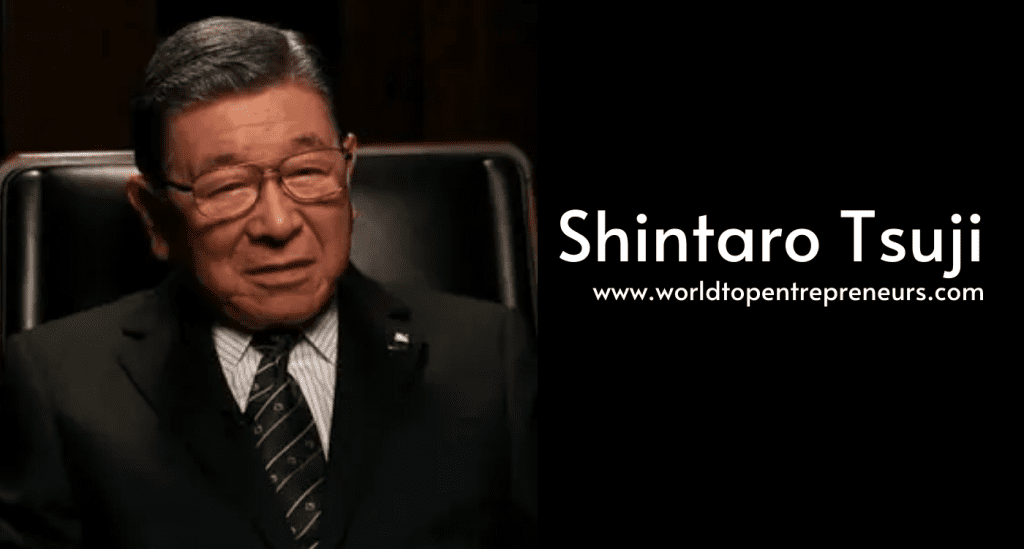In the ever-evolving world of video games, certain individuals leave an indelible mark on the industry, shaping its course with their creativity and vision. Shinji Mikami, the founder of Tango Gameworks, is one such luminary whose contributions have profoundly influenced the genre of survival horror and beyond. From his early days in game development to his establishment of Tango Gameworks, Mikami’s journey is a testament to innovation, passion, and the relentless pursuit of excellence in interactive entertainment. This article delves into Mikami’s life, his creative journey, the founding and evolution of Tango Gameworks, and his lasting impact on the gaming industry.
Early Life and Career Beginnings
Shinji Mikami was born on September 11, 1965, in Osaka, Japan. Growing up in a country where technological advancements and the burgeoning gaming industry were beginning to take shape, Mikami was exposed to a world of innovation from a young age. His early interest in art and design laid the groundwork for his future career in video games, but it was his fascination with storytelling and immersive experiences that ultimately guided him toward game development.
Mikami’s journey into the world of video games began in the late 1980s, a period marked by rapid advancements in gaming technology and a burgeoning market for interactive entertainment. He joined Capcom in 1990, where he initially worked as a designer and programmer. His early projects included contributions to various Capcom titles, but it was his work on “Sweet Home” (1989) that began to reveal his potential as a creator. Though not a blockbuster, “Sweet Home” was an early example of his interest in blending horror elements with gameplay, a theme that would become central to his future work.
Breakthrough with Resident Evil
Shinji Mikami’s career took a monumental leap forward with the creation of “Resident Evil” (known as “Biohazard” in Japan), released in 1996. The game, developed for the Sony PlayStation and Sega Saturn, was a groundbreaking title that redefined the survival horror genre. Mikami’s vision for Resident Evil was influenced by his previous work on “Sweet Home” and a desire to create a game that combined horror elements with a compelling narrative and challenging gameplay.
- Concept and Development
The concept for Resident Evil was born out of Mikami’s interest in creating an immersive horror experience. He envisioned a game that would evoke fear and tension through atmospheric settings, limited resources, and a gripping storyline. The game’s design focused on creating a sense of isolation and dread, with its confined spaces, eerie environments, and unsettling creatures. Mikami’s attention to detail in creating a convincing and terrifying world was instrumental in making Resident Evil a standout title.
Resident Evil’s development was marked by several innovations that set it apart from other games of its time. The use of pre-rendered backgrounds, fixed camera angles, and a deliberate pace created a sense of tension and suspense that was unprecedented in gaming. Mikami’s emphasis on exploration, puzzle-solving, and resource management contributed to the game’s immersive and engaging experience.
- Impact and Legacy
Resident Evil was a commercial and critical success, establishing Shinji Mikami as a leading figure in the gaming industry. The game’s success led to a franchise that would become one of the most influential and enduring in video game history. Resident Evil’s innovative gameplay mechanics, atmospheric design, and compelling narrative set new standards for the survival horror genre and influenced countless other games.
The franchise’s impact extended beyond video games, leading to adaptations in film, television, and other media. Mikami’s creation became a cultural phenomenon, demonstrating the potential of video games to transcend their original medium and reach a broader audience.
Establishing Tango Gameworks
After his success with Resident Evil and other projects at Capcom, Shinji Mikami sought to explore new creative opportunities. In 2010, he founded Tango Gameworks, an independent game development studio. The establishment of Tango Gameworks marked a new chapter in Mikami’s career, allowing him to pursue his creative vision and develop games that reflected his unique approach to game design.
- Vision for Tango Gameworks
Mikami’s vision for Tango Gameworks was to create a studio that could explore innovative ideas and push the boundaries of interactive entertainment. He sought to build a team that shared his passion for creating immersive and engaging experiences. Tango Gameworks was founded with the goal of developing games that combined compelling narratives, atmospheric design, and cutting-edge technology.
The studio’s first project was “The Evil Within” (known as “Psychobreak” in Japan), released in 2014. The game was a return to Mikami’s roots in survival horror, featuring many of the elements that had defined Resident Evil. “The Evil Within” was designed to evoke fear and tension through its dark and unsettling environments, challenging gameplay, and complex narrative. Mikami’s vision for the game was to create a horror experience that was both innovative and true to the genre’s roots.
- Challenges and Achievements
Developing “The Evil Within” presented several challenges for Tango Gameworks. Creating a game that lived up to the legacy of Resident Evil while also offering something new required careful planning and execution. Mikami and his team faced challenges related to technology, design, and production, but their commitment to delivering a high-quality experience drove them to overcome these obstacles.
“The Evil Within” received positive reviews for its return to classic survival horror elements and its innovative gameplay. The game’s success demonstrated Tango Gameworks’ ability to create compelling and immersive experiences, establishing the studio as a prominent player in the gaming industry.
Following the success of “The Evil Within,” Tango Gameworks continued to develop and release new titles, including “The Evil Within 2” (2017) and “GhostWire: Tokyo” (2022). Each of these projects showcased Mikami’s dedication to pushing the boundaries of game design and exploring new ideas within the horror genre.
Philosophies and Creative Approach
Shinji Mikami’s approach to game design is characterized by several key philosophies and principles that have guided his work throughout his career. These principles reflect his commitment to creating immersive and engaging experiences that resonate with players.
- Emphasis on Atmosphere and Immersion
Mikami’s games are known for their atmospheric design and immersive environments. He believes that creating a convincing and engaging world is essential for delivering a memorable gaming experience. This emphasis on atmosphere is evident in the detailed and atmospheric settings of games like Resident Evil and “The Evil Within,” where every element contributes to the overall sense of dread and suspense.
- Focus on Player Experience
Mikami’s design philosophy places a strong emphasis on the player’s experience. He believes that gameplay should be challenging and rewarding, with a focus on exploration, puzzle-solving, and strategic decision-making. This player-centric approach is evident in the gameplay mechanics of his titles, where players are encouraged to engage with the environment and make meaningful choices.
- Innovation and Experimentation
Throughout his career, Mikami has demonstrated a willingness to experiment and innovate. He is not afraid to push the boundaries of traditional game design and explore new ideas and concepts. This commitment to innovation is reflected in the unique gameplay mechanics, narrative structures, and design elements found in his games.
- Attention to Detail
Mikami’s meticulous attention to detail is a hallmark of his work. From the design of environments and characters to the implementation of gameplay mechanics, every aspect of his games is carefully crafted to create a cohesive and immersive experience. This attention to detail contributes to the overall quality and impact of his games.
Lasting Impact and Legacy
Shinji Mikami’s contributions to the gaming industry have had a profound and lasting impact. His work has not only shaped the survival horror genre but also influenced the broader landscape of video game design and development.
- Shaping the Survival Horror Genre
Mikami’s pioneering work on Resident Evil set new standards for the survival horror genre, influencing countless other games and developers. His innovative approach to gameplay, narrative, and atmosphere has become a model for designing immersive and engaging horror experiences. The success of Resident Evil and subsequent titles has cemented Mikami’s legacy as a key figure in the evolution of survival horror.
- Inspiring Future Generations
Mikami’s career serves as an inspiration to aspiring game developers and designers. His commitment to creativity, innovation, and excellence demonstrates the potential of video games to create meaningful and impactful experiences. Future generations of developers can look to Mikami’s work as a source of inspiration and a guide for pushing the boundaries of game design.
- Influence on Game Design and Technology
Beyond the survival horror genre, Mikami’s influence extends to broader aspects of game design and technology. His work has contributed to advancements in game mechanics, narrative structures, and environmental design. The principles and techniques developed by Mikami and his team at Tango Gameworks continue to shape the evolution of video games.
- Ongoing Legacy Through Tango Gameworks
Tango Gameworks, the studio founded by Mikami, continues to operate as a leading game development company. The studio’s ongoing projects and innovations reflect Mikami’s vision and commitment to creating high-quality gaming experiences. The legacy of Shinji Mikami is carried forward through the work of Tango Gameworks and the continued impact of his contributions to the industry.
Conclusion
Shinji Mikami’s journey from a passionate game designer to the founder of Tango Gameworks is a story of innovation, creativity, and dedication. His groundbreaking work in the survival horror genre, particularly with Resident Evil, has left an indelible mark on the gaming industry. Mikami’s commitment to creating immersive and engaging experiences continues to influence game design and inspire future generations of developers.
As we look back on Mikami’s career and achievements, we see a visionary who has pushed the boundaries of interactive entertainment and redefined the possibilities of video games. His legacy serves as a reminder of the power of creativity and the potential of video games to captivate, challenge, and inspire. Shinji Mikami’s impact on the world of gaming is a testament to his extraordinary talent and his enduring contributions to the art and craft of game development.















